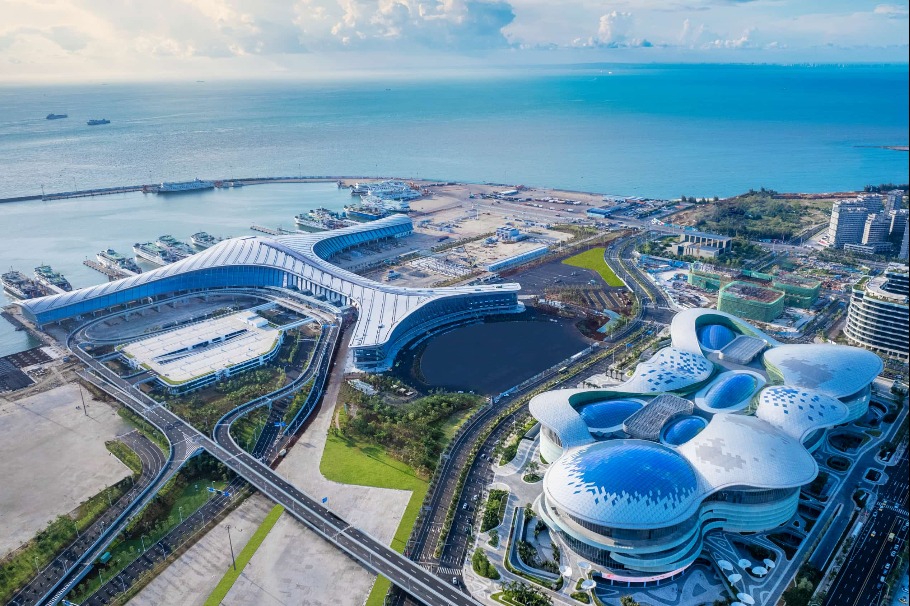Turning the economy around


Cutting expenses is a quick fix for HK's swelling budget deficit, but diversifying and creating new growth sources, drawing up a clear economic revival blueprint, and making a comprehensive review of the tax regime would help put public finances back on track. Oswald Chan reports from Hong Kong.
Hong Kong has had budget deficits in four of the five fiscal years since 2019-20. Presenting the 2024-25 Budget on Wednesday, Financial Secretary Paul Chan Mo-po again painted a bleak picture, projecting another deficit of HK$101.6 billion ($13 billion) for the fiscal year of 2023-24 on the heels of a HK$122.3 billion shortfall in the previous fiscal year.
From the 1998-99 to 2003-04 fiscal years, the special administrative region government had incurred five budget deficits (except 1999-2000).
The city's fiscal reserves are predicted to have dwindled by about HK$400 billion in the past four fiscal years (2020-21 to 2023-24). The reserves are estimated to have slumped to HK$733.2 billion as of March when they stood at HK$834.8 billion a year ago. The SAR's fiscal reserves have only surpassed HK$1.1 trillion, which is the highest level since 1997, during the fiscal years from 2018 to 2020.
For the fiscal year of 2024-25, the administration is expecting another budget deficit of HK$48.1 billion after taking into account bond issuance proceeds, and fiscal reserves are expected to decrease to HK$685.1 billion by the end of March 2025. Total government expenditure and revenue for the year are estimated to be HK$776.9 billion and HK$633 billion, respectively.
Heightened geopolitical tensions, rising US interest rates and a slower-than-expected economic recovery on the Chinese mainland have clouded prospects of an economic rebound for Hong Kong following the COVID-19 pandemic. The administration had spent more than HK$600 billion on anti-COVID-19 and countercyclical measures to fight the pandemic and reboot the economy from 2020 to 2022, exacerbating the city's budget deficit woes.
Government expenditure grossly exceeded revenue in the past decade, with spending having jumped by more than 75 percent - from HK$433.5 billion in 2013-14 to HK$761 billion in 2023-24 - while revenue estimates edged up by just 41 percent during the same period - from HK$455.3 billion in 2013-14 to HK$642.4 billion in 2023-24.
Tang Hei-wai, a Victor and William Fung professor in economics at HKU Business School and associate director at the Hong Kong Institute of Economics and Business Strategy, expects the deficit to improve when the local economy regains momentum next year or by 2026, and various initiatives to curb spending, such as freezing job recruitment and encouraging technology digitalization to reduce staff costs, are implemented.
Tang says the SAR must strive to expand its narrow tax base, suggesting the possibility of levying a sales tax in the medium or long term. But he believes neither a capital gains tax nor a land departure tax is practical as they would restrict the flow of capital, talents and tourists into Hong Kong, crimping its economic competitiveness in Asia. The solution for the deficit problem, Tang suggests, could be in raising tax revenues by boosting economic growth.
"This concerns whether Hong Kong can have a clear and effective industry policy to promote new economic activities. With such a policy, there would be inflows of capital and talents to bolster our economic capacity," Tang says.
He points to structural causes for the continued budget deficits. "Hong Kong's public finances focus mainly on the inflow and outflow of cash every financial year. Article 107 of the Basic Law requires the SAR to maintain fiscal discipline stringently. Therefore, the government cannot make financial commitments for long-term infrastructure and land projects, thus crimping the city's long-term economic vitality, productivity, competitiveness and growth prospects that should be addressed urgently."
Article 107 under the Basic Law stipulates that Hong Kong shall follow the principle of keeping expenditure within the limits of revenues in drawing up its budget, and try to achieve a fiscal balance, avoid deficits and keep the budget commensurate with the growth rate of its GDP.
The 2024-25 Budget says the SAR government is making progress on the Northern Metropolis while consultancy work continues on the Kau Yi Chau artificial island reclamation project, which is an essential part of the Lantau Tomorrow Vision. However, the Kau Yi Chau project's implementation time will be slightly later than the Northern Metropolis as the government has to consider the financial cost.
Tang believes that when it is difficult to implement the Lantau Tomorrow Vision and Northern Metropolis simultaneously amid soaring budget deficits, the Northern Metropolis project should get priority. "This area is an important land source to meet population growth for transforming Hong Kong into a mega metropolis with a population of 10 million to lure overseas capital and talent to support economic growth.
"Moreover, the Northern Metropolis development is also vital for pushing the goal of developing high-technology industries and new industrialization in Hong Kong, as well as fostering deeper integration with the Guangdong-Hong Kong-Macao Greater Bay Area," he says.
Tang says that as Hong Kong's debt-to-GDP ratio is relatively low, it makes sense to provide leeway for bond issuances to meet the funding of long-term infrastructure and land investment projects, while ensuring that the city's credit rating is not affected.
























